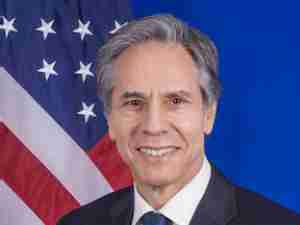EU to Prepare for U.K. Trade Deal Even as Brexit Talks Stall
By: Helene Fouquet, Nikos Chrysoloras and Ian Wishart | Oct 17 2017 at 03:08 PM | International Trade
European Union countries are seeking to complete their own preparatory work on a future relationship with the U.K. this year, a move intended to keep hope alive for Theresa May’s government even as Brexit negotiations remain stalled.
The Council of the EU, which represents member states, will start working with the European Commission as soon as this month on the key points, according to two EU officials familiar with the matter. The plan is to have a road map ready by December so that trade talks can begin as soon as the EU decides the U.K. has offered enough on the divorce settlement to deserve moving on to trade, according to the officials, who spoke on condition of anonymity.
The preparation work, which will only be carried out within the European side, represents a gesture to the U.K. in response to the concessions May made in her Florence speech last month. The EU may still decide in December against starting trade negotiations, and continues to press May to make her intentions on paying the exit bill clear.
“This week’s European Council will be a stepping stone toward the next get-together,” the EU’s chief Brexit negotiator Michel Barnier said ahead of this week’s EU leaders meeting in Brussels. “I have said we are ready to accelerate the rhythm, but to accelerate you need two.”
Barnier said last week Brexit talks were deadlocked over the financial settlement, and a dinner with May last night yielded little. Barnier is frustrated by the U.K.’s refusal to turn the words of the Florence speech into clear negotiating positions, according to an EU official. Another EU official said the bloc considers its offer to May very positive considering the lack of clarity on the U.K. side, and the next move had to come from the U.K.
May’s team believes she has already moved as far as she can toward giving the EU what it wants. They believe she took a political risk in offering to pay into the EU budget and meet wider financial obligations and now needs the bloc to make a big gesture on trade talks in return.
“We are reaching the limits of what we can achieve without consideration of the future relationship,” U.K. Brexit Secretary David Davis told lawmakers in London on Tuesday. “We are ready to move these negotiations on.”
The EU27’s leaders will call this week for the start of “internal preparatory discussions” on the framework of a future trade deal with the U.K. as well as on transitional arrangements toward such a deal, according to a draft statement on Brexit. That is far short of what the U.K. wanted, which is to move on to at least discuss the transition deal it wants to put in place after Brexit day.
Those internal preparations will include about 15 policy areas regarding the future relationship between the two sides—from financial services to fishing and anti-dumping, one of the officials said. The work means that once the U.K. gets the green light to talk about trade, negotiations can move more quickly. It took two months of EU consultations for the existing negotiating guidelines for Barnier to be decided.
The financial settlement remains the biggest stumbling block in talks, which also need to resolve the rights of citizens living abroad and the question of the Irish border.
The EU has maintained its unity with all agreeing that the bill still needs to be agreed before talks can move on. While France and Germany have been singled out as the hardliners, officials said on Tuesday their position enjoys broad support across the block.









